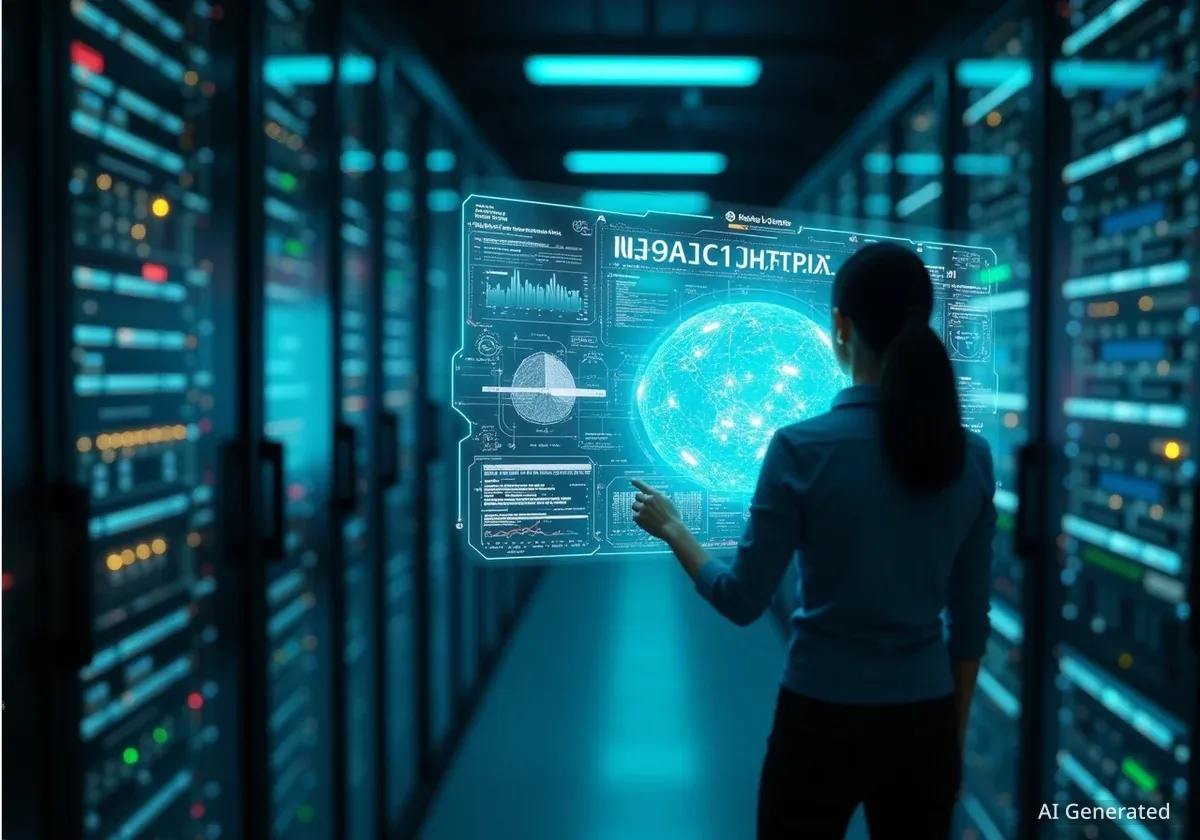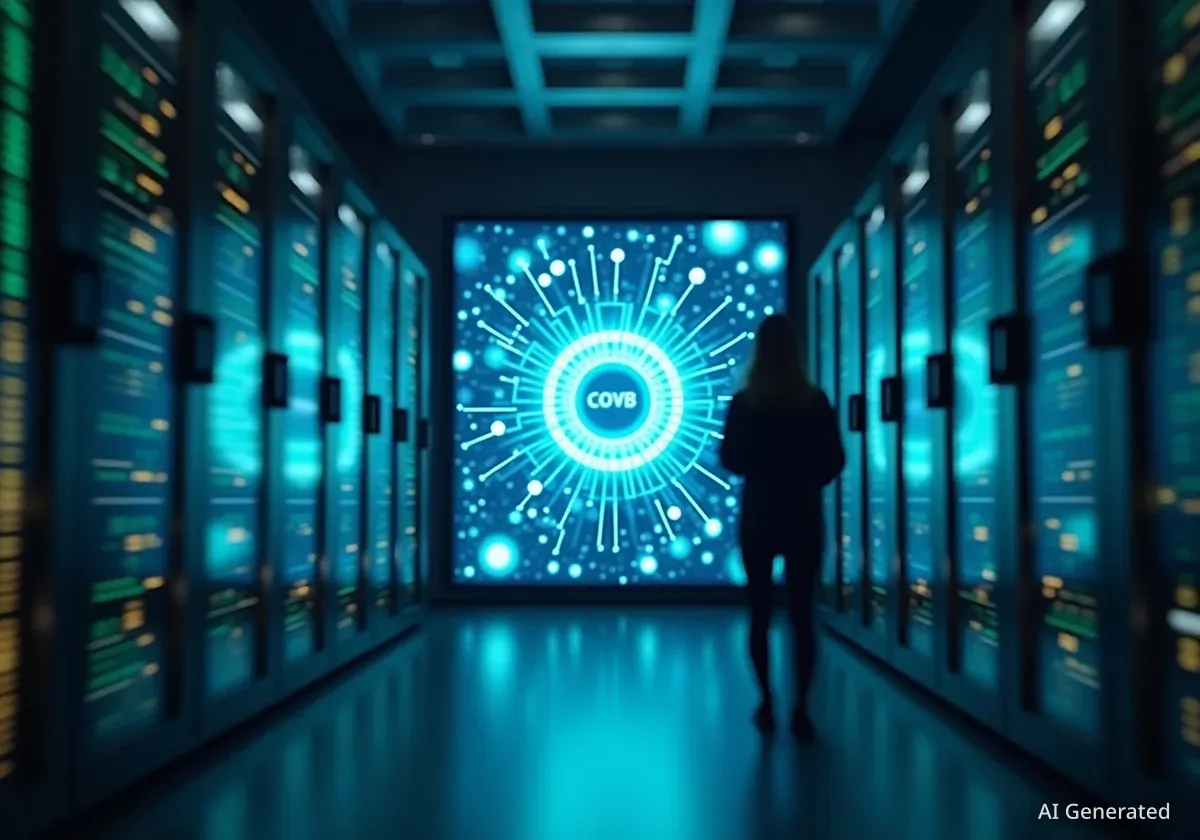Several companies in the Boston area have confirmed a shift in their hiring strategies, attributing a reduction in new hires for certain positions to the widespread adoption of artificial intelligence. Executives from various sectors, including online gambling and enterprise software, report using AI not only to improve operational capabilities but also to manage costs and increase overall efficiency.
This development in a major U.S. technology hub provides concrete examples for the ongoing national debate about the impact of AI on the labor market. While some economists predict significant job displacement, others argue that the technology will ultimately create more roles than it eliminates.
Key Takeaways
- Companies in the Boston area are actively reducing hiring in specific roles due to the integration of AI tools.
- Jason Robins, CEO of DraftKings, publicly stated the company will use "AI agents" to replace potential human hires and reduce staff in some areas.
- PTC, a design software firm with over 7,000 employees, is implementing AI across multiple departments to enhance productivity.
- The trend reflects a broader economic discussion on whether AI will lead to net job loss or job creation.
A New Hiring Landscape in Boston
A growing number of Boston-based businesses are re-evaluating their workforce needs as they integrate artificial intelligence into their daily operations. Companies in sectors ranging from online health services to software development have indicated that AI is enabling them to perform tasks that previously required human employees.
The primary motivations cited are increased efficiency and cost reduction. By automating routine tasks and enhancing data analysis, these firms aim to streamline their processes and allocate resources more effectively. This strategic shift is beginning to show tangible effects on the local job market, with fewer openings in roles susceptible to automation.
This trend is not isolated to a single industry. It represents a strategic pivot among corporate leaders who see AI as a fundamental tool for maintaining a competitive edge. The focus is on leveraging technology to augment the existing workforce while slowing the pace of new hiring for specific functions.
DraftKings Vocalizes AI-Driven Workforce Changes
One of the most direct statements on this trend came from Jason Robins, the chief executive of the online gambling company DraftKings. Speaking at a recent investor conference, Robins provided a clear view of the company's strategy regarding AI and employment.
"We are going to be able to basically replace what would have been human hires with AI agents and also reduce [workers] in certain areas as well."
Robins' comments highlight a deliberate plan to substitute automated systems for human labor in targeted areas of the business. The term "AI agents" suggests the use of sophisticated software capable of performing complex, autonomous tasks, likely in areas such as customer service, data analytics, or marketing operations.
What Are AI Agents?
An AI agent is a software program that can perceive its environment, make decisions, and take autonomous actions to achieve specific goals. Unlike simple automation scripts, agents can learn and adapt. In a business context, they could handle customer inquiries, manage inventory, or analyze market data without direct human oversight.
This public acknowledgment from a high-profile CEO marks a significant moment in the discussion around AI and jobs. It moves the conversation from theoretical possibilities to documented corporate strategy, signaling that workforce reduction through AI is an active goal for some companies.
Broad AI Integration at PTC
The trend extends beyond consumer-facing companies like DraftKings. PTC, a prominent design software firm headquartered in Boston's Seaport district, is another example of a company embracing AI on a large scale. With a global workforce of more than 7,000 people, PTC's approach demonstrates how AI is being integrated into the core of a major enterprise.
According to the company, AI is not being used for a single purpose but is being deployed across many different departments. This suggests a comprehensive strategy to enhance functions ranging from software development and product design to marketing and internal operations.
PTC at a Glance
- Industry: Computer-aided design (CAD) and Product Lifecycle Management (PLM) software.
- Employees: Over 7,000 worldwide.
- Headquarters: Boston, Massachusetts (Seaport).
- AI Application: Utilized across multiple corporate departments.
For a company like PTC, AI can help engineers create more efficient designs, assist marketers in analyzing customer data, and streamline administrative tasks. The widespread implementation indicates that the company views AI as a foundational technology for future growth and productivity, which in turn influences its long-term hiring plans.
The Larger Economic Debate on AI and Employment
The actions of Boston-area companies like DraftKings and PTC are at the center of a vigorous debate among economists and labor market analysts. The core question is whether AI will be a net destroyer or creator of jobs. For decades, technological advancements have historically led to the creation of new industries and roles, even as they displaced workers in others.
However, some experts argue that the capabilities of modern AI are fundamentally different. They believe its potential to automate cognitive tasks, not just manual labor, could lead to widespread job losses across industries previously considered safe from automation, such as creative fields, software engineering, and analysis.
Conversely, other economists maintain an optimistic view. They predict that AI will act as a productivity tool, augmenting human capabilities and freeing up workers to focus on more strategic and creative endeavors. This perspective suggests that while some jobs will be lost, many more will be created in areas related to managing, developing, and working alongside AI systems. The experiences of job seekers and hiring managers already reflect this uncertainty, with many finding it harder to secure roles in specific fields.
The current trend in Boston suggests that, at least in the short term, some companies are prioritizing the efficiency gains and cost savings offered by AI, leading to a deliberate slowdown in hiring. The long-term effects on the broader economy remain a critical and unanswered question.





